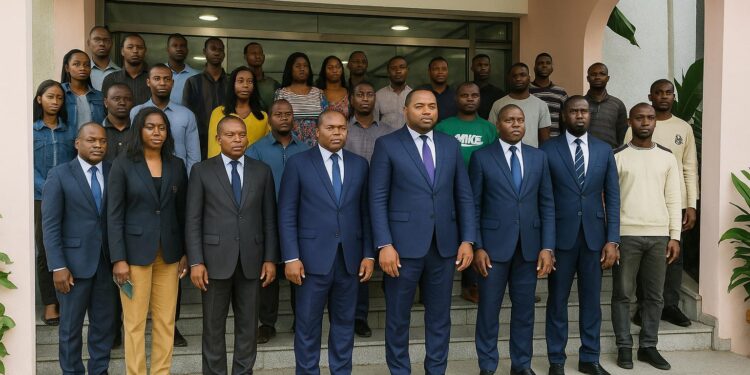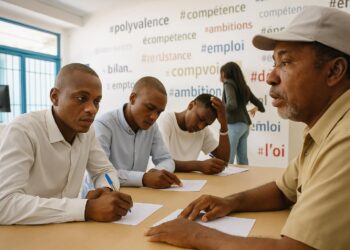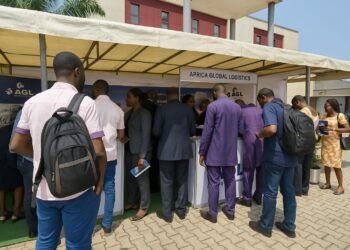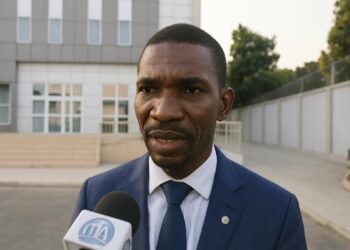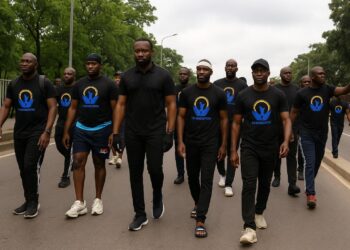Strategic Scholarships Boost Local Content
Nineteen Congolese students boarded flights to Algiers and Baku this month after winning full scholarships from national oil company SNPC. The five-year packages cover tuition, housing and meals, positioning the cohort to become the country’s next generation of petroleum engineers.
Chief executive Maixent Raoul Ominga insisted the selection was entirely merit-based, echoing President Denis Sassou Nguesso’s call to reward excellence. Applicants were screened by the Directorate of Exams using baccalaureate scores, with no regional or ethnic quotas.
Why Algeria and Azerbaijan Matter
Algeria’s National Hydrocarbon Institute and Azerbaijan’s renowned Baku Higher Oil School are the host institutions, both recognised by OPEC members for producing operationally ready engineers and geoscientists. Their laboratories expose students to high-pressure drilling simulations, digital reservoir models and carbon-capture pilot units rarely available in Central Africa.
The choice of destinations also strengthens South–South cooperation. Algerian operators Sonatrach and contractors such as Schlumberger-Algeria regularly deploy experts to Pointe-Noire, while SOCAR’s trading arm already markets some Congolese crude in the Mediterranean.
Aligning with Congo’s Energy Roadmap
Brazzaville’s 2022-2026 Development Plan targets a 35 % increase in oil production and initiation of onshore gas monetisation. Executing these ambitions demands specialized talent in enhanced recovery, digital subsurface imaging and low-carbon project management.
Currently, fewer than 120 Congolese engineers hold internationally accredited petroleum degrees, according to Ministry of Higher Education estimates. Industry executives warn that retirement of expatriate staff could create a skills cliff within five years if no pipeline is built.
SNPC’s scholarship budget, undisclosed but described as several million dollars, therefore forms a strategic human-capital hedge while showcasing the company’s broader ESG commitments. The initiative fits neatly into the government’s Local Content Bill now before parliament, which mandates greater Congolese participation in technical roles.
Opportunities for Investors and Contractors
For international operators, a deeper domestic talent pool can shorten project learning curves, reduce reliance on costly fly-in consultants and enhance social licence to operate. Several IOCs have already flagged interest in co-sponsoring future cohorts as part of joint-venture obligations.
Service firms may also benefit. Baker Hughes has agreed in principle to offer internships at its Pointe-Noire maintenance centre, giving returnees hands-on exposure to subsea equipment and digital twins. Talks are underway with Halliburton and TotalEnergies EP Congo to replicate the model.
Financial institutions tracking sustainable finance note that capacity-building initiatives often qualify for green or social bonds, potentially lowering SNPC’s future borrowing costs. Local banks such as BGFI Congo have shown willingness to structure such instruments alongside regional partners.
Monitoring, Gender Balance and Next Steps
Ominga told the scholars that a joint SNPC-Ministry oversight committee will track attendance, grades and laboratory hours in real time through partner universities’ online portals. Quarterly reviews will decide eligibility for holiday stipends and research grants.
Seven of the nineteen awardees are women, a ratio significantly above the sector’s current 12 % female professional representation. Officials say the figure should reach parity in future intakes, aligning with the African Union’s 2063 gender goals.
Beyond degree coursework, students will undertake language immersion in Arabic or Azeri before switching to technical English, a skill prized by multinationals operating offshore blocks. SNPC expects the multilingual capacity to facilitate future negotiations and specialized safety trainings.
The company is also negotiating reciprocal lecturer exchanges, enabling professors from Marien-Ngouabi University to access Algerian seismic labs and Azeri drilling simulators. Such exposure could help reform Congo’s petroleum curriculum, launched two decades ago.
In the medium term, successful graduates will be fast-tracked into SNPC’s upstream digitalisation unit, currently deploying cloud-based reservoir management with partners Microsoft and Schlumberger. This could cut decline rates at onshore fields like M’Boundi.
Analysts at consultancy Rystad Energy project that Congo’s oil output can stabilise at 330,000 barrels per day by 2027 if enhanced recovery programmes proceed, an outlook partly hinged on local talent availability. Scholarship initiatives therefore carry macroeconomic significance.
While the first cohort heads abroad, SNPC is already vetting candidates for 2024 and exploring partnerships with Malaysia, Brazil and the United Arab Emirates to diversify technological exposure. Officials aim to double slots to forty per intake without diluting standards.
Long-Term Economic Impact
Economists argue that each locally trained engineer can generate up to ten skilled jobs in logistics, fabrication and data services, multiplying the scholarships’ effect across the value chain. The policy therefore also supports the government’s ambition to raise non-oil GDP growth to five percent.
Crucially, the programme is funded without tapping state coffers; SNPC uses a share of its cost-recovery savings generated after recent renegotiation of production-sharing contracts. Observers view this as a prudent model for corporate social investment, replicable by mining or telecommunication parastatals across the region as integration deepens under the AfCFTA.

































